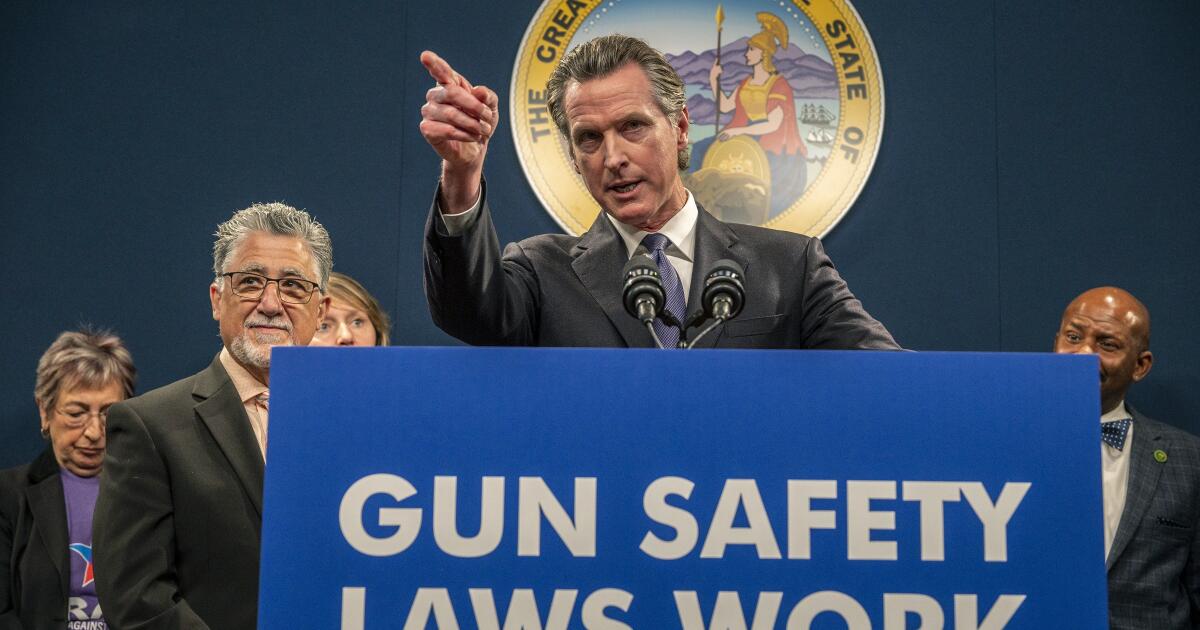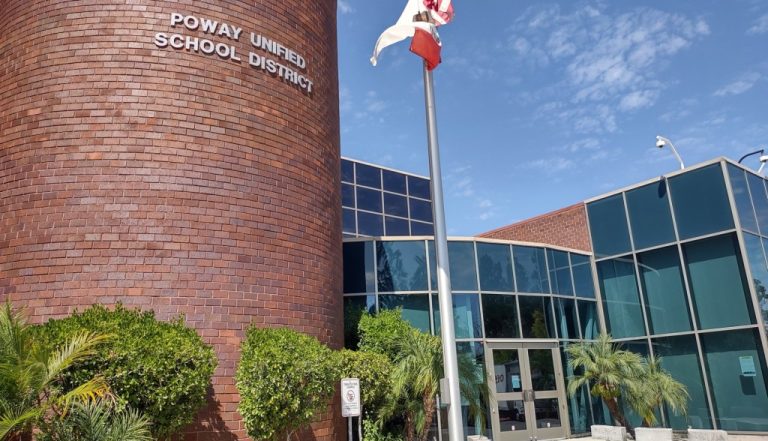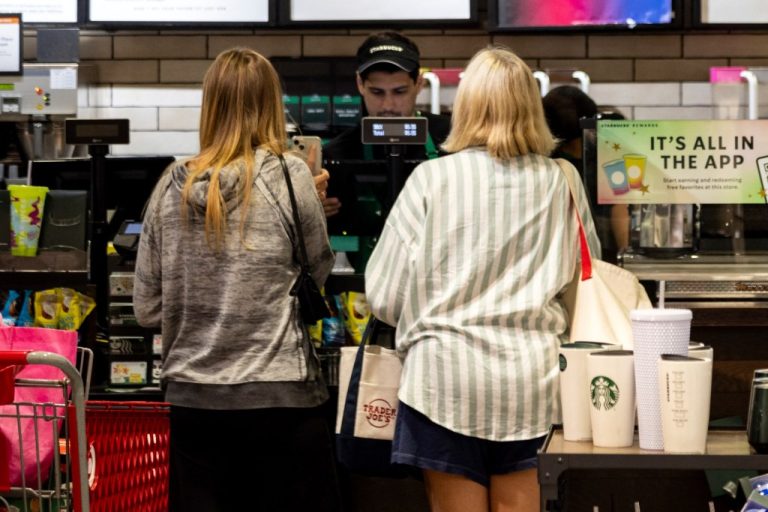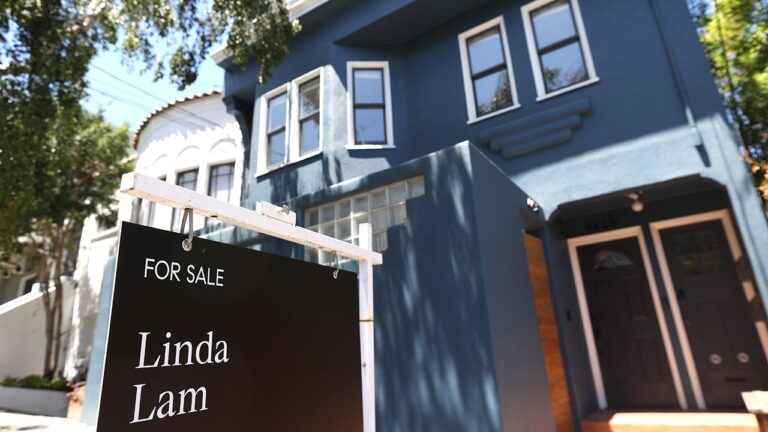
The new year was supposed to usher in a controversial new California law tightly narrowing where people can carry firearms — including those licensed to carry a concealed weapon.
But instead it’s been whiplash, as courts grapple with a host of legal challenges by gun owners and advocacy groups.
A federal district court judge had blocked the law in December, calling it “sweeping, repugnant to the Second Amendment, and openly defiant of the Supreme Court.” The state appealed his ruling, and a federal appeals court said on Dec. 30 the law could go into effect. It referred the case to a special 9th Circuit merit panel.
On Saturday, a federal appellate panel again blocked the law from going into effect. Arguments before the merit panel are slated for April.
Enforcement has been up in the air, given the legal uncertainty.
San Diego police said last week they are waiting the City Attorney’s Office to provide legal analysis of the new law to be able to craft enforcement policies or provide direction their officers.
The Sheriff’s Department — the local agency that issues permits to carry concealed weapons — said Friday it was not aware of deputies responding to calls for potential violations, and are “actively monitoring” the federal court actions.
Nearly 17,000 people in San Diego County have a permit to carry a concealed weapon. On Saturday, the head of San Diego County Gun Owners advised its members that the Saturday decision means they can continue carrying guns as they had been before the new law was to go into effect.
The new law, part of Senate Bill 2, bars people from bringing guns to more than two dozen specific “sensitive places,” including parks, playgrounds, museums, any sort of medical office or facility, and places of worship — churches, mosques, synagogues and such.
Guns are also banned from all private commercial sites open to the public unless the owner hangs a state-approved sign expressly stating that firearms are allowed.
San Diego County Gun Owners founder Michael Schwartz and his group are among plaintiffs in one of the federal suits challenging the new law. He said no one with permits to carry a concealed weapon had “really truly been able to carry outside of their homes.”
“There’s really no place outside of your home that someone is able to exercise their right to keep and bear arms, their right to self defense,” he said last week before the ruling.
SB 2 was among several weapons-related laws Gov. Gavin Newsom signed into law in September, including one that adds an 11 percent tax on guns and ammo purchases in California, the only state with such a tax.
The courts have knocked down many of California’s gun restrictions in recent years — including rulings by a San Diego federal judge who last year found the state’s ban on assault weapons was unconstitutional, and also struck down a state ban on firearm magazines larger than 10 rounds.
The tug-of-war over SB 2 comes after a 2022 U.S. Supreme Court court-ruling in New York State Rifle & Pistol Assn. vs. Bruen, which struck down laws requiring people to show that they had a good reason to be allowed to do carry a concealed weapon — facing a specific threat such as having a stalker, for instance, or they transported valuables for work. California had a similar subjective requirement.
Now, the requirement factors are more objective, such as having met training requirements and passing a background check.
Numbers provided by the San Diego County Sheriff’s Department reveal a skyrocketing demand for concealed-carry permits in recent years.
In 2020, there were a little more than 700 active permits. The number jumped to about 3,100 in 2021. The following year, it rose to more than 8,900 permits.
As of Friday, there were 16,956 active permits in San Diego County. The Sheriff’s Department said it issued 621 permits in November, and another 554 in December. The permitting process can take several months.
Senate Bill 2 passed the year after the high court decision in Bruen.
“While radical judges continue to strip away our ability to keep people safe, California will keep fighting — because gun safety laws work,” Newsom said in a statement issued when he signed the bill in September.
Gun owners filed legal challenges immediately after the signing.
On Dec. 20, U.S. District Judge Cormac Carney granted an injunction barring enforcement of SB 2. “SB2 turns nearly every public place in California into a ‘sensitive place,’ effectively abolishing the Second Amendment rights of law-abiding and exceptionally qualified citizens to be armed and to defend themselves in public,” he wrote in the 43-page opinion.
Noting the “vigorous vetting process” to get a concealed-carry permit, Carney called such permit holders “among the most responsible, reliable law-abiding citizens.” He said SB 2 deprives them “of their constitutional right to carry a handgun in public for self-defense.”
California’s gun death rates are among the lowest in the country, ranking 43rd among the states in 2021, according to a Johns Hopkins review of Centers for Disease Control data.
Newsom’s push to harden gun laws extends beyond California with his proposed Right to Safety amendment to the U.S. Constitution, which calls for raising the minimum age to buy a gun from 18 to 21, mandating background checks before purchase, instituting a waiting period for all gun buys and a ban on assault rifles.
Earlier this year, a vote by the the San Diego County Board of Supervisors failed to get enough support the Newsom’s proposed amendment. The vote split 2-2 on partisan lines.





